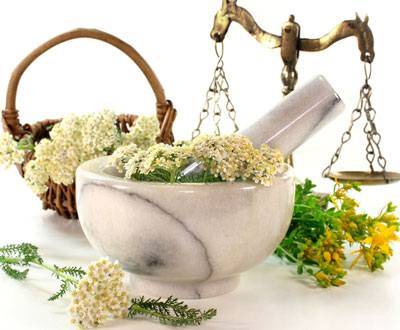 By TreeLiving
By TreeLiving
The term “holistic medicine” often conjures images of faith healers and snake oil salesmen in people’s minds. While it does include what are generally considered alternative therapies, holistic medicine is far more practical than you might think. There is a growing number of holistic practitioners, and even conventional doctors ng> are increasingly embracing the concept.
By definition, holistic medicine is a method of healing that addresses not only the physical problems of the body, but issues of the mind and spirit that contribute to physical ailments. It seeks to cure pain and disease with the most natural methods possible. The first line of defense is usually changes in lifestyle. Next come natural alternatives such as acupuncture, chiropractic therapy or herbal medicine. If these methods fail, conventional drugs or surgery are considered, but only as a last resort.
Whereas conventional medicine tends to focus on the treatment (and often suppression) of symptoms, holistic medicine focuses on healing the individual as a whole. Practitioners spend a lot of time getting to know a patient and understand his mental and spiritual state. They also take into consideration the patient’s home and work environments, diet and emotional issues before deciding which treatment options will be most effective.
As an illustration of the concepts of holistic medicine, consider a patient that is experiencing frequent headaches. A conventional doctor may simply prescribe pain medication. A holistic doctor, on the other hand, would start by looking for the root cause of the headaches. It could be any number of things, including stress, improper eating habits, lack of sleep, alcohol use, food allergies or intolerance, caffeine withdrawal, bad ergonomics, eye problems, overexertion or environmental allergies. These underlying causes can often be remedied by simple lifestyle changes or alternative therapies, eliminating or reducing the need for medication.
The growing interest in holistic medicine is due in part to an increased awareness of the limitations and side effects of conventional drugs and therapies. Holistic doctors are becoming easier to find not only in big cities, but in smaller towns and even rural areas. Conventional doctors are also becoming more open to the concepts of holistic medicine, if not as an initial treatment, at least as a complement to pharmaceuticals and other widely used options.
If you’ve found that conventional medicine isn’t working for you or is causing new problems, consider visiting a holistic practitioner. There’s most likely one in your area that is covered by your insurance plan, and many offer discounted rates for those without insurance. Even if you’re a fan of conventional medicine, holistic medicine could lower your healthcare costs by helping you treat or eliminate the cause of the problem rather than spending lots of money on expensive prescription drugs.

